Q : I see so many trainers using treats when they train whats your philosophy on that subject?
A : I have had enough close encounters of the horse's mouth kind to know better than to overindulge in feeding treats… but that is not the only reason I abstain from using treats in the training of horses. Using treats as a means of motivation in training is standard procedure in training dogs, clicker training and at the hands of many equestrians. Despite the widespread popularity and acceptance, I have yet to find a sound reason to use treats as a motivation in training.
Commonplace I see horses who mow over their owners' personal space, who root and push with their heads and faces, who poke their noses in every crack and crevice for a small nibbling of sustinence… not to mention those who simply drag their unwitting handlers half a mile for a mere blade of green grass. I am not surprised to see this anymore, though surprise is still present when I hear owners complain of these habits and then not only fail to nip them in the derriere but to also encourage them by constantly doling out treats. How can the horse respect you when all you are is a treat dispenser?
Bottom line for me is that treats are a no-no in training. That is the short story. If you would like a break down of the reasons why then follow along with me down the rabbit hole.
It started many many years ago for me, let's just say around 15 years ago, that feeding horses treats casually and in the training process came to a halt. Not for just a single reason either. True, I nearly lost a finger which proved traumatic enough, but lets follow that up with then acquiring a young gelding who would quite literally lose his head the second food was involved in the equation. And for arguments sake I will also point out that he was not lacking in calories but rather looked like he should be due to birth triplets any day, ahem.
Following these two incidences there was another gelding who came into my care to be trained. His owner felt that she could make up for the lack of her regular presence with a plethora of treats and goodies on the rare times when she did show up. Every time this created a leap backwards in his training and put us another couple of weeks behind the progress we had been making. “But I thought treats were to help reinforce what it is we want and expect from the horse during training.” Tell that to this horse!
I have yet to encounter a horse whose training has benefitted from being fed treats, and yet found nearly every horse's training suffers from said treat feeding. How did we come to associate food and training? I see children in schools being rewarded for doing well on tests or on assignments with sugary treats… which contribute to an inability to concentrate. That seems counter-intuitive.
Do not forget to look at the underlying issue with feeding treats as reinforcement or motivation. It is a substitute for knowing how to properly motivate or train the horse. There is a hole there and it is being filled with feeding treats. It produces horses who seek and root for treats, who invade personal space. Yes, there are those who are taught NOT to do those things – but why add the extra time and effort of having to teach the horse not to root for the treats you are using to motivate him with?
What can I say, I'm lazy and like to achieve the most with the least effort – and that includes training the horse WITHOUT the use of treats and food to motivate. My fiance doesn't keep me in a relationship with him because he feeds me candy. I want a relationship with my horse, not a bribery situation with treats and that is exactly how I view treats used in training. The horse's participation is based upon the bribe, and when that fails we are left with a horse who refuses to be involved.
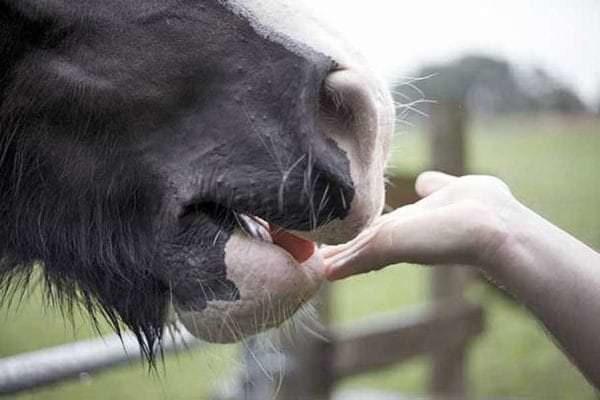
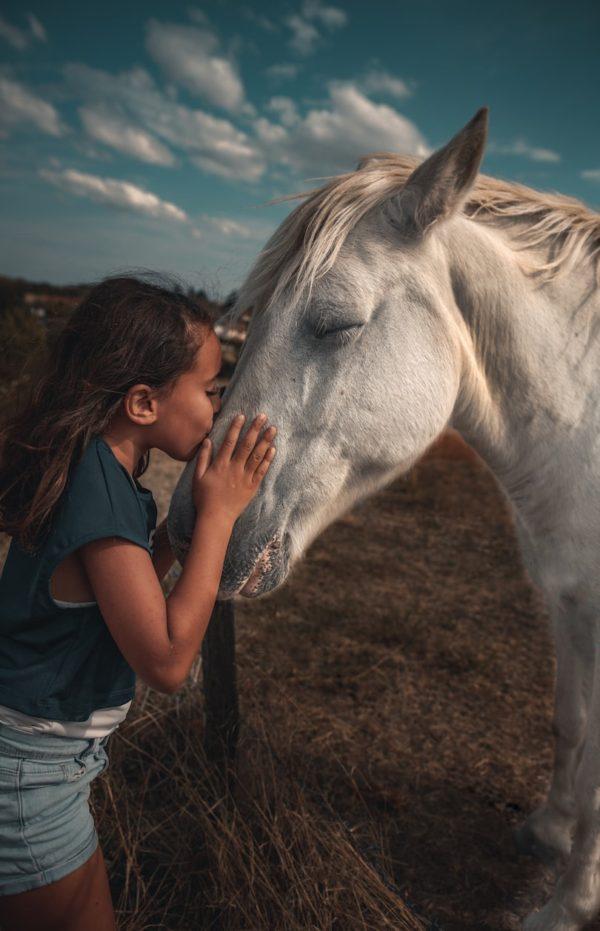
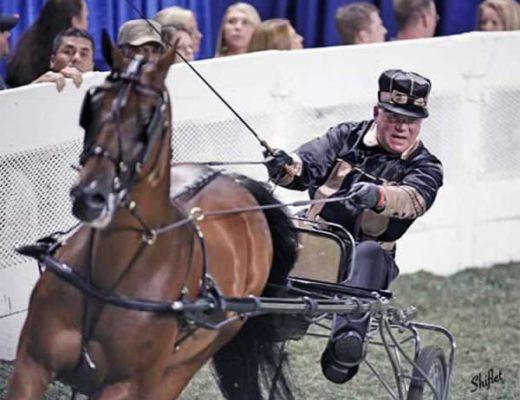
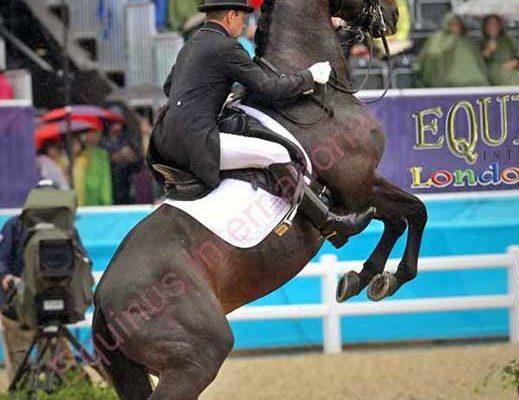
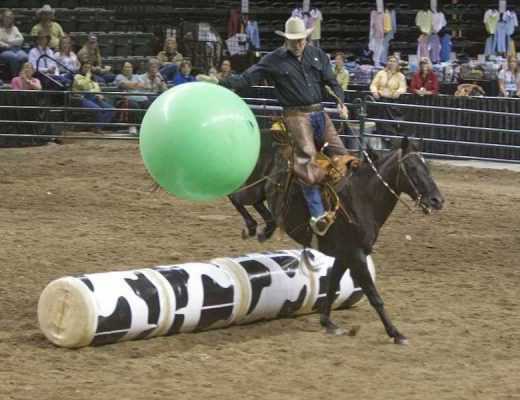
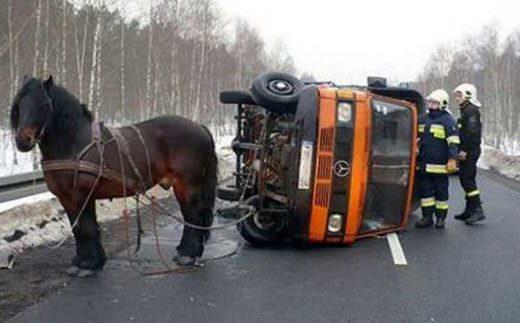
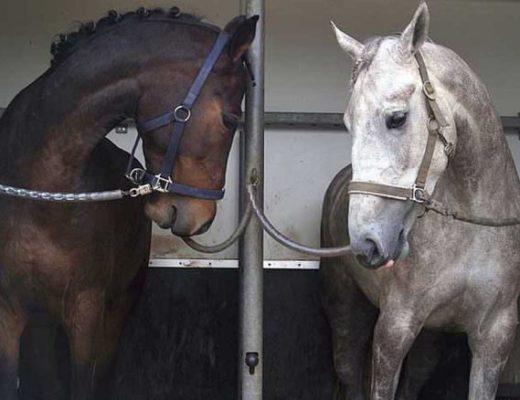
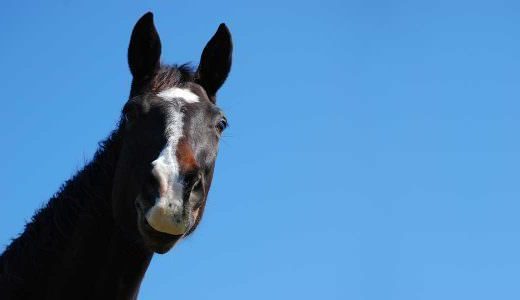
Who are you anyway. So much of what you have to say seems to contradict real informed horsemanship.
If you care to read a short, and somewhat incomplete, bio about me you are welcome to, however I doubt you will be impressed. I know that I’ve somehow indirectly insulted you already by your response over my impression of Pat and Linda Parelli, which you are certainly entitled to your opinion – as am I. 🙂
I’ll shrug in regards over this, I’ve long since given up trying to conform to the groups’ impression of what is correct or right. If I followed what most “real informed” horsemen practiced I would probably still be stuck working through problems with horses who buck on the lunge or under saddle, issues with manners, spooking, refusing to stand at the mounting block, etc. The list could go on. When I was a teenager I was more concerned with political correctness, not rocking the boat, making sure my opinions matched the majority, etc. Now that I’ve grown up a little I find that to have no meaning or merit except to feel ‘safe’ and approved of.
Really though, my main goal in life is to have a pleasurable and equally rewarding relationship with my horse. I have no desire to simply train him to react to cues or perform for the crowd. I hope to be a horse person that my horse actually looks forward to spending time with, is reassured by my presence and who can trust that I won’t over tax him, hurt or injure him, or otherwise put my own selfish motivations before his well being.
The reason I write on a public forum such as my blog is that I’ve found that writing is therapeutic for me, and people have continued to request written information from me. They ask me what I would do in a certain situation or in dealing with particular problems. I don’t always address those types of questions on a regular basis on my blog but when I have the time to write something a little more organized (if only you could see the disorder in my brain at times!) I do so.
Cheers 🙂
Hi Erika, Thanks so much for your informative and candid reply. I read your biographical information with interest. I share your goal of:
“pleasurable and equally rewarding relationship with my horse. I have no desire to simply train him to react to cues or perform for the crowd. I hope to be a horse person that my horse actually looks forward to spending time with, is reassured by my presence and who can trust that I won’t over tax him, hurt or injure him, or otherwise put my own selfish motivations before his well being.”
Curiously enough your goal is right in line with what every Parelli student learns early on in their studies. “Put the relationship first.” Any organization that is successful in helping large numbers of people with their horsemanship is going to also need a successful marketing program. This is true of Monty Roberts, Clinton Anderson, Craig Cameron, and lots of other folks who have reached the public with information about good horsemanship including Parelli. Good marketing does not automatically indicate an exclusively selfish motive.
As for treats…. it is common for informed folks like you to either reject the use of treats in training or to swear by their use. I have found that, as with lots of things, the truth is not that simple. There are situations and horses where treats can be used to change a particular horse’s attitude towards a task or relationship, just as there are situations where the use of treats can turn a relationship sour. In my opinion, there is no one size fits all answer to this question.
Anyway… these are my thoughts. They are not intended to downgrade yours. I thank you for this opportunity to voice them. I find that when I give an opinion, it is always stronger to properly research the opinions of others first, then relate my opinion to those of others. I confess that I don’t always do this.
Thank you again for your response. I wish you every success.
Seth
I’ve really appreciated your comments, Seth, as many do not voice their opinions in such a clear manner when they are in disagreement. Doing so allows so much room for conversation and ultimately to expand one’s views and thoughts. 🙂
I agree that treats can be useful in changing a horse’s opinion – about people – in certain situations such as when you are rescuing a horse who has been abused or mistreated. Treats can help open a space which is otherwise guarded periodically during interactions. My opposition to treats is in the precise training process… with an added caveat.
Keeping in mind that we are training the horse constantly, we are not always asking him to do something, and that is what I am differentiating between. Feeding a horse a treat is hardly something to get a slap on the wrist about, though I see no benefit and rather a drawback as using treats as a way to reinforce or motivate the horse when you are asking him to do something such as load on a trailer, pick up his feet, half-pass, and so on. But to feed him a treat when bonding and socially interacting I see no harm in. 🙂
And there is always room to over-feed treats, or to feed none at all and go about in military fashion. 🙂
Fact: We have been working with the same animal that has remained virtually unchanged mentally, emotionally and instinctually for 6,000 years.
Fact: Our Internet list and forums and equine magazines are continually filled with behavioral issues and ‘bad horse problems.’ (In fact, they have accelerated in numbers in the last generation.)
Fact: Doing the same thing over and over and expecting different and/or better results is a sign of non compos mentis, (an unsound mind).
Acceptance of these three facts leads us to seeking alternative methods of ‘horse training,’ (and the prevention of all those behavioral issues and ‘bad horse problems from ever occurring).
Fact: Any sentient being will respond and function much more favorably through the use of positive reinforcement.
When proxemic guidelines are established, (common interactive manners) barging over and mugging by a horse in search of treats ceases to exist.
Based on Positive Reinforcement, Clicker Training was our first legitimate step up and away from past and present ‘horse training methodologies.’
Friendship Training takes an even deeper step in the process of a establishing a harmonious, positive relationship.
Friendship Training is based on Laws of Intention, Laws of Appreciation and the equine values of the Peer Attachment relationship. This nullifies previous negative experiences with humans and behavioral problems.
Chuck & Kids
Lady, Able, Sundance, Boss & Combustion
( And Rebel & Nikki )
The inability to see the benefit of feeding treats, a primary reinforcer, infers to me that like many horse people you see horses as ‘other’ than other animals (including humans) or perhaps don’t understand behavioral training. There is a great difference between those you hand out treats randomly, (or even ‘manage’ horses using food lures) accept mugging or other dangerous behaviours, and those who understand how to train with positive reinforcement.
The ability to understand and effectively use all quadrants of behavioural modification, simply adds to the knowledge and adaptability of the trainer.
Most horse people are stuck with only using traditional (or NH) negative reinforcement, and positive punishment, because they don’t understand what behavioral modification is. Everything gets wrapped in all sorts of horsemanship myth and magic. There is little understanding of how to evaluate behaviours, (without all the mumbo jumbo about leadership and respect that comes from increasingly discredited alpha/hierarchy theories) and whether a horse is being reinforced or punished by what the person/environment/horse itself self is doing.